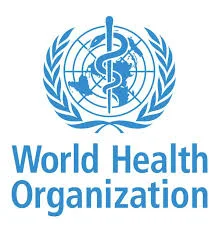"Omicron" confuses the world What do scientists know about the new mutant?
The World Health Organization described the new mutated from the Corona virus as "a concern".
South African researchers have discovered a new, multi-mutational mutant of the Corona virus "Omicron" that may be highly contagious, causing panic in the world and leading to the cancellation of many international flights.
The World Health Organization described the mutant Friday as a "report of concern", at a time when scientists are working around the clock to analyze this mutant and seek to understand its behavior.
Below is a brief explanation of what is known, based on information presented by South African researchers.
Transgene origin
The origin of the new mutant is still unknown, but South African researchers were the first to report its detection on 25 November. On this date, cases were recorded in Hong Kong and Botswana. A day later, both Israel and Belgium reported cases.
Mutations
On November 23, researchers discovered a new "abnormally multiple mutation" mutant. Some are known, others are new.
It has "the largest number of mutations we have seen so far," Musa Mushabella, a professor and head of research and innovation at the University of KwaZulu-Natal, told AFP.
He added, "We have previously observed some of them in the delta and beta mutant, while others are unknown to us and we do not know how this group of mutations will interact."
In the spike protein, the key to the virus entering the body, the researchers observed more than 30 mutations, which is a marked difference from other worrisome mutations.
The speed of infection
The speed with which new daily MERS cases are increasing in South Africa indicates that most of them are associated with omicron, but the new mutant is highly contagious.
The number of daily positive COVID-19 cases rose rapidly this week from 3.6 percent on Wednesday to 6.5 percent on Thursday and 9.1 percent on Friday, according to official figures.
"Some of the mutations reported previously have been shown to allow the virus to spread easily and quickly," says Professor Mushabella. "That's why we expect the new mutation to spread quickly."
Immunology and Vaccines
Based on renewed infections "more than during previous waves", the mutant is likely to escape immunity, according to Mushabella, who based his observations on preliminary data.This could reduce the effectiveness of vaccines to an extent that has yet to be determined.
The severity of the disease
This is the question that has yet to be answered. The new mutant was discovered only a week ago, leaving insufficient time to determine the clinical severity of OMICRON's cases.




Good
ReplyDeleteIt has "the largest number of mutations we have seen so far," Musa Mushabella, a professor and head of research and innovation at the University of KwaZulu-Natal, told AFP.
ReplyDeleteThe speed with which new daily MERS cases are increasing in South Africa indicates that most of them are associated with omicron, but the new mutant is highly contagious.
ReplyDeleteGreat
ReplyDeleteGreat
ReplyDeletethat the sounds of cannons and various types of weapons were heard
ReplyDelete